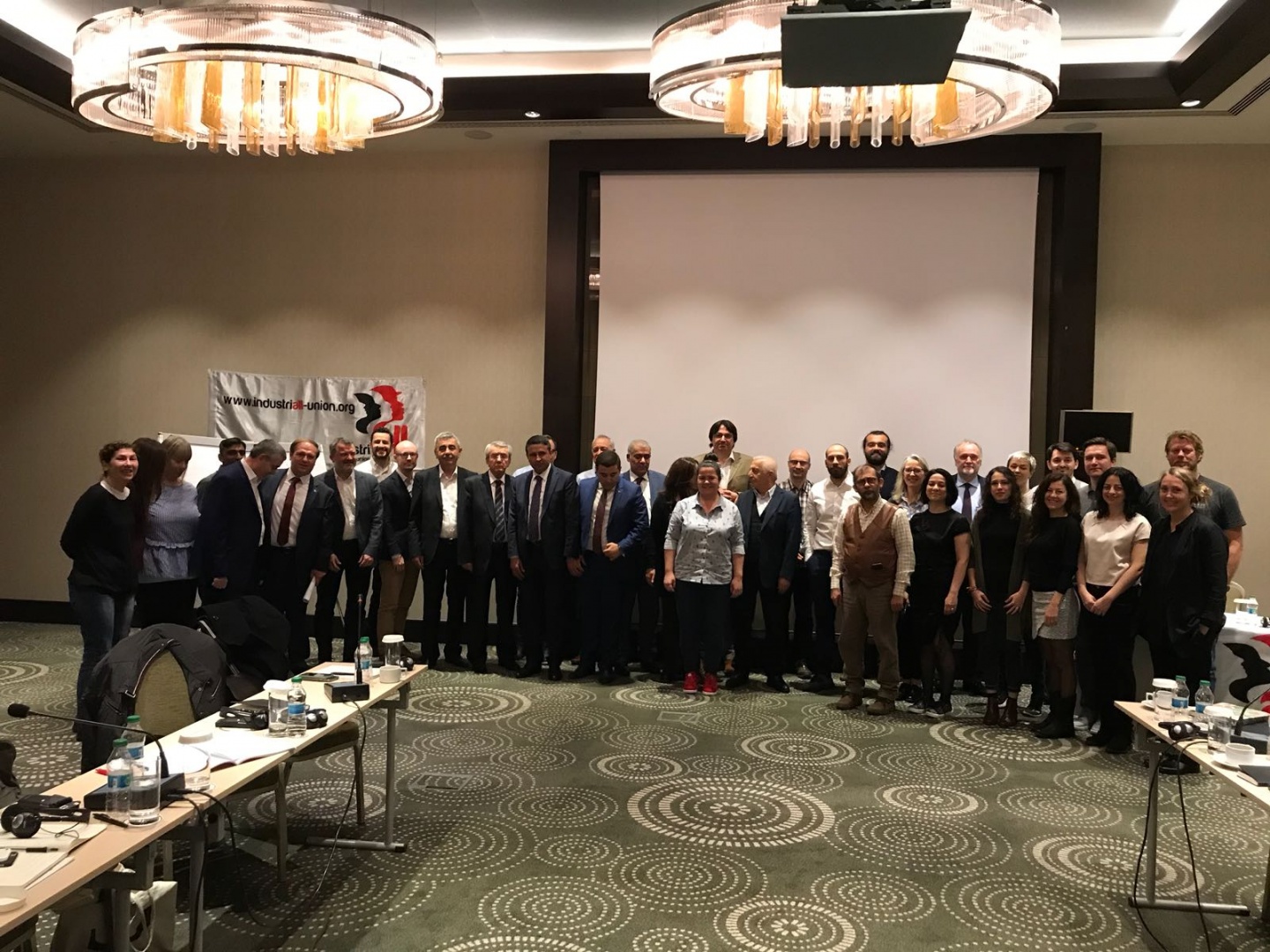11 April, 2018Textile, garment and leather sector unions in Turkey pledged their support to the ground-breaking worldwide initiative ACT (Action, Collaboration, Transformation), led by IndustriALL Global Union and brands and retailers to achieve living wages in the sector.
This commitment was announced in a meeting in Istanbul where corporate signatories of ACT met with IndustriALL and its Turkish affiliates – Teksif, Öz İplik İş, Disk/Tekstil and Deriteks – to discuss the implementation of ACT in the Turkish garment industry.
The ACT initiative is conducting similar drives in the main textile and garment producing countries to transform the industry with living wages for workers through industry-wide collective bargaining linked to purchasing practices.
In most garment and textile producing countries, including Turkey, workers’ wages are currently set well below a living wage. There is increasing awareness that raising wages of workers in the textile and garment supply chain to a living wage cannot be achieved by retailers and brands acting alone. ACT aims at bringing together global brands and retailers, trade unions, manufacturers and governments to work together to achieve living wages.
Textile, garment and leathers sectors are among the main drivers of the economy in Turkey as one of the three largest export industries. Turkey is among the top textile and garment producing countries. Although official figures show around a million workers employed in the sector, various studies report at least double that, due to the unregistered economy.
The legal minimum wage is determined on annual basis through the Minimum Wage Fixing Board composed of representatives of Government, employers and trade unions. The Board takes its decisions by majority vote. In general, minimum wage is set by the agreement of Government and employers with the opposition of trade unions.
The legal minimum wage for 2018 is gross 2.029,50 TRY (around US$ 500) and net 1.603,12 TRY (around US$ 400). Most textile and garment workers earn around this minimum wage, which is far from a living wage.
At the meeting, participants debated how minimum wage mechanisms have proven to be insufficient in raising wages to a living wage and how ACT will work to establish industry-wide collective bargaining agreements that build upon the minimum wage mechanism, enabling living wages to be achieved, negotiated by national trade unions and manufacturers together.
The participants recognized that the role of purchasing practices is essential to achieving living wages. ACT members continue to work towards ensuring that their respective purchasing practices facilitate the payment of a living wage.
IndustriALL’s Turkish affiliates proposed several suggestions on where the brands’ purchasing practices have the greatest negative impact on wages and working conditions, including price negotiations, proper labour pricing, predictability, planning, and forecasting.
Before the meeting with ACT signatories, IndustriALL’s Turkish affiliates agreed to develop their dialogue and collaboration in producing joint positions and taking joint action when possible. This also covers co-existence in processes, projects and structures relevant to the global framework agreements signed by IndustriALL and collaboration and working together in the ACT process.
“We express our heartfelt congratulations to our Turkish textile, garment and leather sector affiliates over their genuine and sincere work towards cooperation among themselves,” said IndustriALL assistant general secretary Jenny Holdcroft.
“We have already made exemplary successful work in Turkey in using global framework agreements in union organizing and developing social dialogue at a number of suppliers. Now it is time to introduce the ACT initiative for better wages in the sector. I am certain that we will manage it”.






